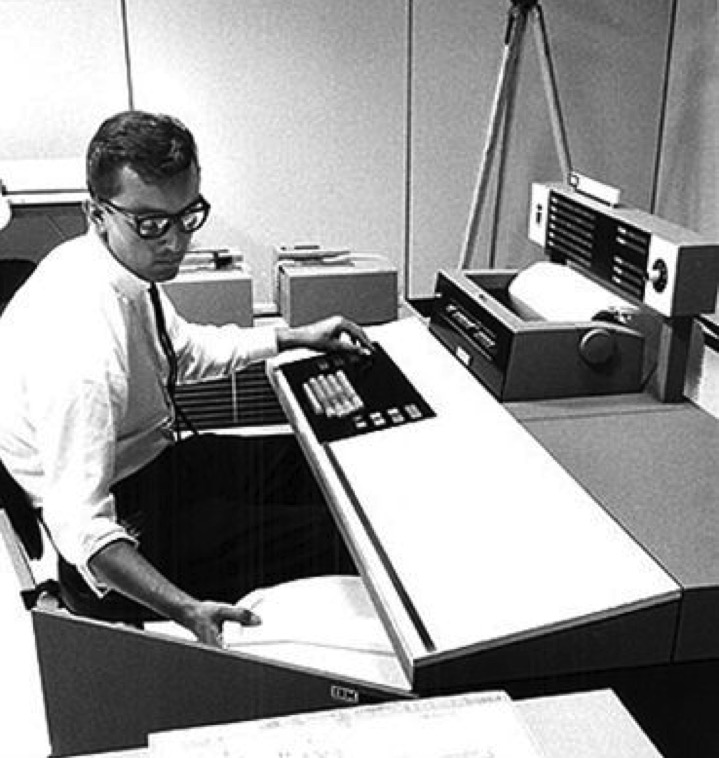History (1965): First Removable Cartridge HDD and Voice Coil Actuator
IBM 2310 Ramkit pioneered HDD technology in small computer applications.
This is a Press Release edited by StorageNewsletter.com on March 9, 2018 at 2:23 pmThis article comes from the Computer History Museum.
1965: First cartridge HDD and voice coil actuator
IBM 2310 Ramkit pioneered HDD technology in small computer applications
Inserting an IBM 2315 cartridge into a 2130 drive

(Courtesy International Business Machines Corporation)
The IBM 1130 Computing System introduced in 1965 was IBM’s first computer to rent for less than $1,000 a month. Aimed at price-sensitive small business and computing-intensive markets, such as education and engineering, most 1130 configurations included the IBM 2310 internal HDD, known as the Ramkit, that featured a removable media cartridge about the size of a pizza box.
The 2130 employed IBM’s first commercial voice coil actuator (VCA) motor to improve the reliability and reduce the seek time of an HDD’s read-write heads. Based on Alexander Graham Bell’s 1876 voice coil and speaker invention, the VCA employs a wire coil that moves linearly in a fixed magnetic field derived from a powerful permanent magnet. This eliminated fluid leaks associated with prior hydraulic driven actuators. Programs could be transferred from the disk spinning at 1,500rpm to the computer’s core memory at the rate of 35,000 16-bit words a second.
Designated IBM model 2315, the 14-inch removable single-platter disk cartridge could store 512,000 words and represented a pioneering effort to bring HDD technology into emerging minicomputer and small office system environments. Encased in a protective polycarbonate cartridge, the lightweight portable disk could be stored in desks or office cabinets.
Typical users included CPAs, law firms, and military customers. Preferring security over efficiency, many of these users kept each client or project on a separate cartridge thereby generating a substantial sales volume of cartridges.
IBM licensed the design to Bruker, DEC, Diablo, Hewlett-Packard, Memorex, Wang, Xerox and many other manufacturers.
The format remained popular into the 1980’s.













 Subscribe to our free daily newsletter
Subscribe to our free daily newsletter

